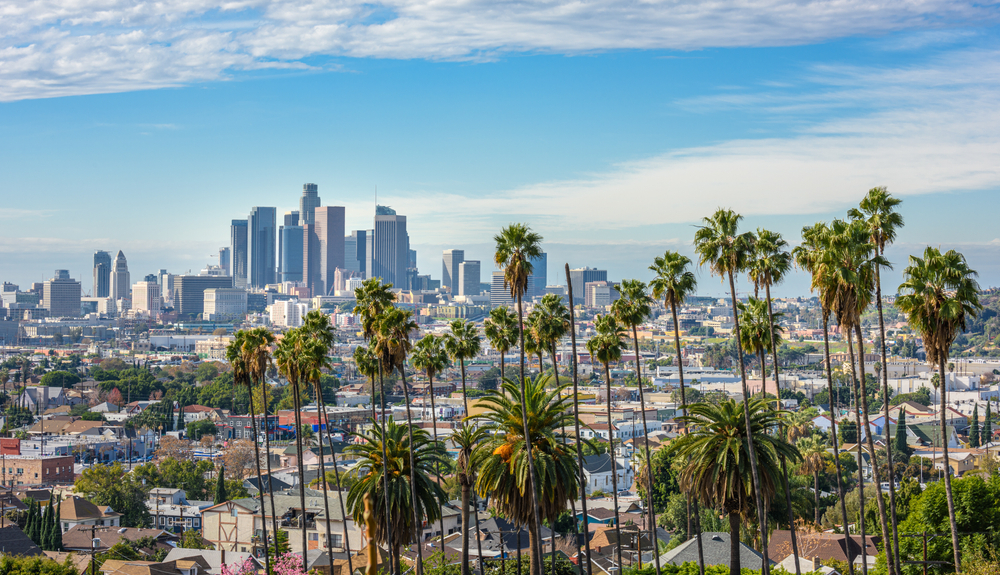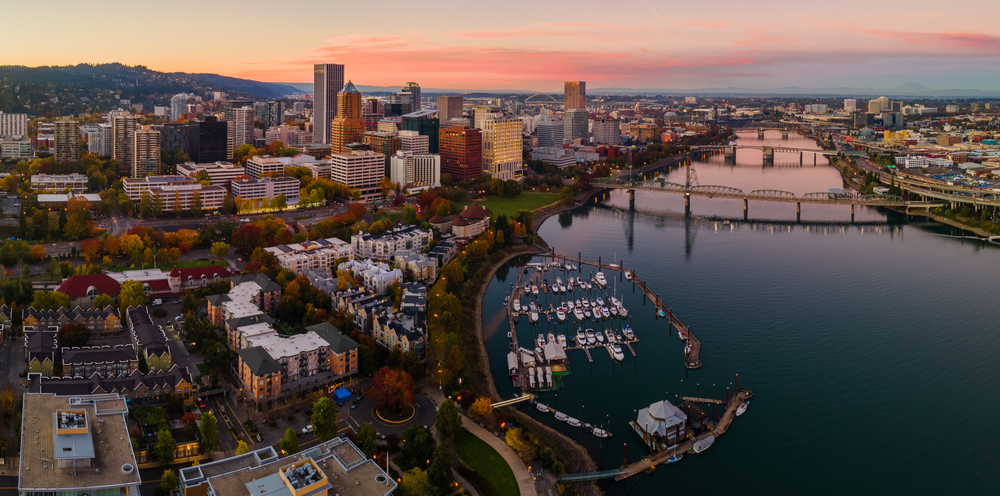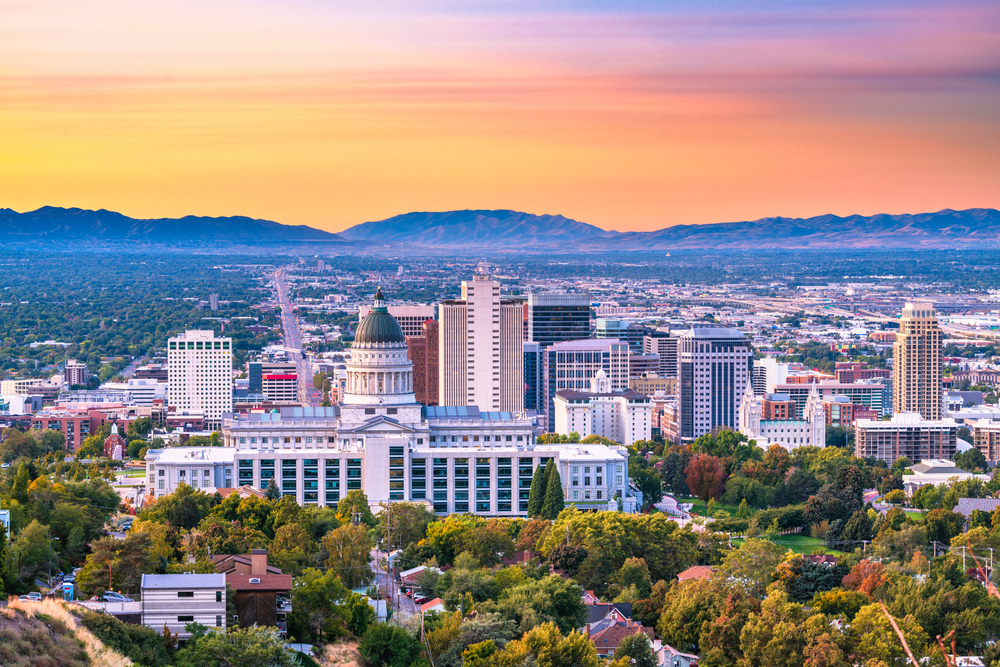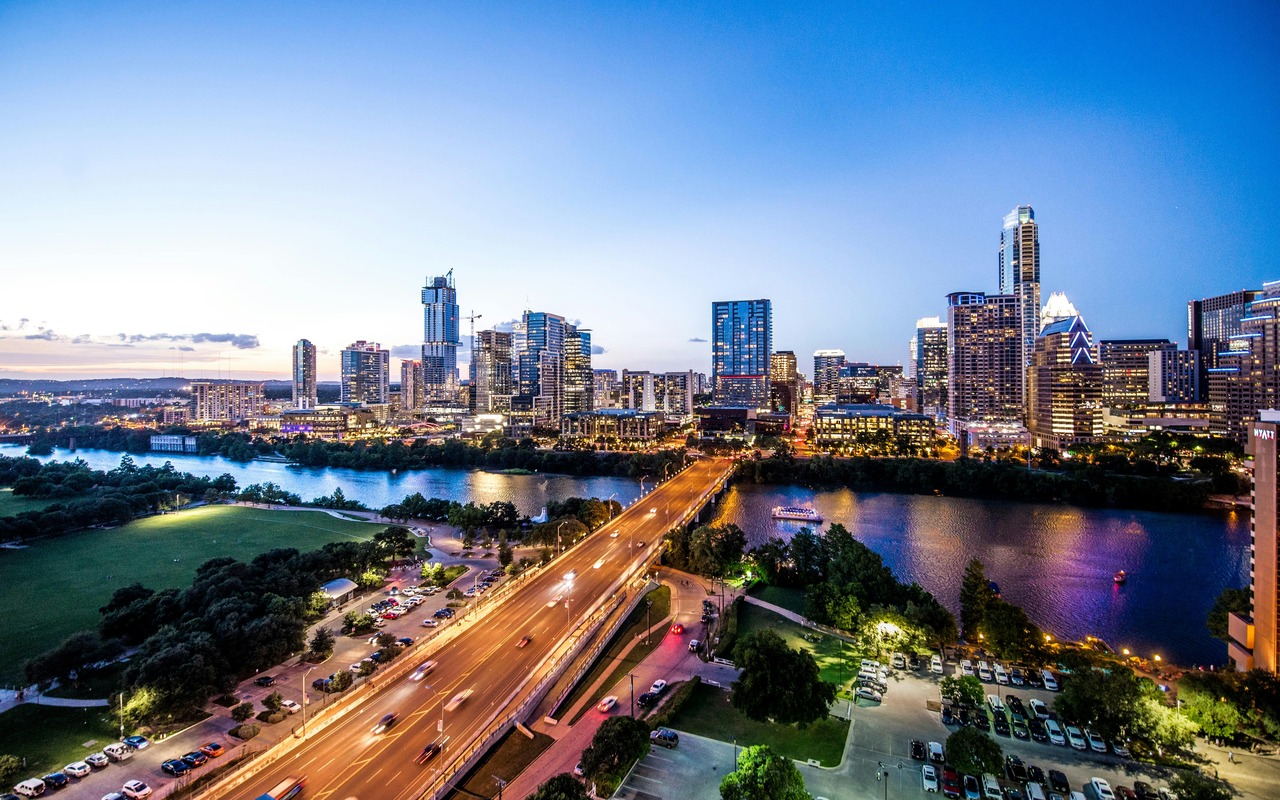
The 20 Pros and Cons of Moving to Boston
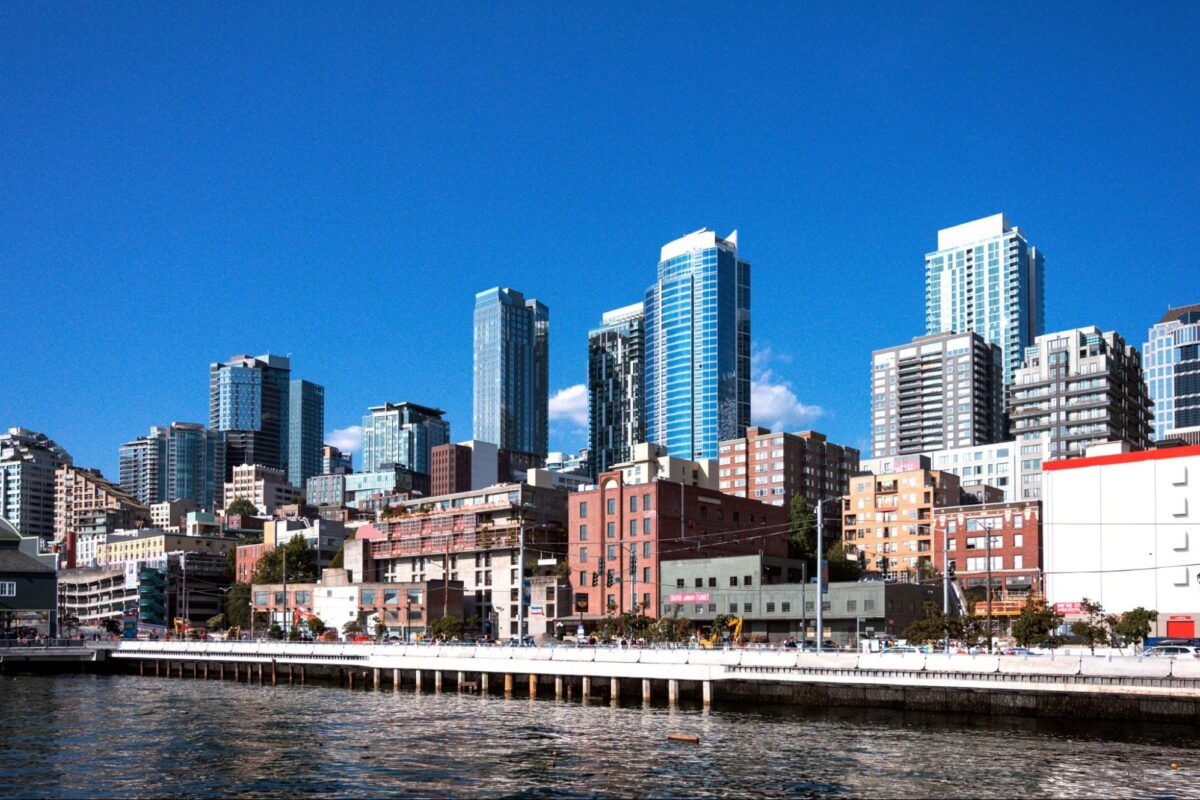
If you’re thinking about moving to Boston, you’re likely trying to weigh whether this New England city will be the right fit for you. While there certainly are perks to having a Dunkin Donuts on every street corner, Boston has its fair share of both benefits and drawbacks to consider if you’re looking to call it home.
Below, we’ve compiled a list of the pros and cons of moving to Boston, including:
Pros of moving to Boston
- Amazing sports scene
- Beautiful spring, summer, and fall
- Walkability and reliable public transit
- Boston is a hub of industry
- Extensive history to explore
- Close to other New England destinations
- Tons of music venues
- Multiple universities
- Easy access to Logan Airport
- Diverse food scene
Cons of moving to Boston
- Winter weather
- High cost of living
- Driving and parking can be difficult
- Everything closes early
- Tons of tourists
- No happy hour
- Reputation for unfriendliness
- Tons of students
- Lack of daylight
- Complicated apartment rental process
Let’s get started!
Pro: Amazing sports scene
While Tom Brady may no longer be playing for the Patriots—let’s have a brief moment of silence—Boston still has an exciting sports scene to follow. From the New England Patriots to the Boston Red Sox, Celtics and Bruins, sports teams in this city make fans go wild. Catch a game at Fenway Park, TD Garden, or Gillette Stadium, or post up with friends at one of the city’s many sports bars. Whether moving to Boston means you become a lifelong fan or just tolerate the Sox, it’s hard to escape this city’s love for its sports teams.
Con: Winter weather
It’s no secret: Boston can get very cold and quite snowy. From November to March, you can expect low temperatures, high amounts of snowfall, and even the occasional nor’easter or blizzard. During major snowstorms, residents should be prepared for power outages and delays on public transport.
When it snows, some Boston neighborhoods honor “space savers”—aka objects that save your parking spot after you go through the trouble of shoveling out your car. These can range from ironing boards to lawn chairs to even lobster traps. Make sure to double-check the rules in your neighborhood before putting out a space saver, though—arguments about them can get contentious!
Pro: Beautiful spring, summer, and fall
Boston may be a difficult place to live during the winter months, but it more than makes up for it with its other three seasons. The city comes to life after the snow melts, with highs in the 80s in the summers. Plus, the autumn season in New England is legendary with its fall foliage.
If you can survive the winter after moving here, Boston rewards you with a delightful remainder of the year. Bostonians celebrate by spending time admiring the flowers in the Public Garden, walking along the beautiful green spaces of the Boston Common, the city’s main public park, and picnicking on the tree-lined Charles River Esplanade.
Still need convincing? Check out our blog post, “5 Reasons to Call Boston Home This Summer.”
Con: High cost of living
Like many in-demand cities, Boston’s cost of living has skyrocketed over the past decade or so—particularly in the real estate sphere. According to Payscale, this city’s cost of living is 48% higher than the national average, with housing costs a whopping 107% higher than the U.S. average. Both home prices and rent prices have been affected by this trend, particularly in Boston’s most popular neighborhoods.
While you can save money by living with roommates or moving to neighborhoods outside of the city center, you can still expect to use more of your paycheck to cover rental costs after moving here.
If you want to rent an apartment, the most expensive and high-end neighborhoods in Boston include Beacon Hill, the Seaport District, and Back Bay, while the most affordable neighborhoods include Allston-Brighton, Dorchester, East Boston, and Roslindale. Prices also get high when you get out of Boston and rent in neighboring cities such as Brookline, Somerville, and Cambridge.
Pro: High walkability and reliable public transit
At 48.4 square miles, Boston isn’t really considered a “big city” when compared to other parts of the country, but its small-town vibes offer major benefits to those living there. Boston is considered highly walkable, especially if you want to travel on foot from downtown to other neighborhoods.
Additionally, Boston’s subway system, the Massachusetts Bay Transportation Authority (MBTA), offers multiple routes throughout the city’s many neighborhoods and into the suburbs via the Commuter Rail. Nicknamed the “T,” this subway system is widely utilized to commute to work or just explore the city.
Con: Driving and parking can be difficult
On the other hand, Boston is not the most car-friendly place when compared to other cities. The streets of downtown Boston follow cow paths from the Revolutionary War era, which means they aren’t the most straightforward or intuitive routes to follow. Get ready to navigate a bunch of one-way streets!
Both off-street and street parking are limited, particularly in dense neighborhoods like Beacon Hill and the North End, so you can expect to do at least a few circles around the block before settling on a space.
For more long-distance commutes from suburbs to the city center, you can expect to deal with major congestion during rush hour. For this reason, many people choose a stress-free commute via the T over bringing their own car downtown.
Massachusetts drivers (aka “Massholes”) also tend to have a bad reputation for erratic, selfish driving, so definitely be aware of your surroundings before getting behind the wheel.
Pro: Boston is a hub of industry
If you’re looking to find a new job in Boston before moving, this city has a booming economy and job market, as well as a strong foothold in several major industries, including the healthcare, pharmaceutical, finance and insurance, higher education, and biotechnology sectors. The largest employers in the city include Massachusetts General Hospital, Brigham and Women’s Hospital, and Boston University.
Boston is also a well-paid city, with average salaries around $81,000 a year, according to Payscale. For young professionals looking for more job opportunities, this Massachusetts city is a great place to start.
Con: Everything closes early
If you’re moving from a major city like New York, don’t expect to party until the wee hours of the morning once you land in Beantown. Generally, bars are required to close before 2 a.m., and public transportation stops service between 1 a.m. and 2 a.m. If you’re planning on staying out later than that, you’ll need to plan around the MBTA schedule with a Lyft or an Uber.
Pro: Extensive history to explore
Boston’s major role in the Revolutionary War will give any history buff more than enough to explore while they’re in town. Downtown Boston is a history hub with The Freedom Trail, a 2.5-mile brick-paved path that covers 16 historical spots from downtown to Charlestown. Top attractions include the Bunker Hill Monument, the site of one of the first major Revolutionary War battles, the site of the Boston Massacre, the Paul Revere House, and the Old North Church.
You’ll also want to take a trip to the Boston Tea Party Ships and Museum, which commemorates colonists’ taxation protest of throwing tea into Boston Harbor. You can even toss your own over the side of the ship while you’re there—just don’t forget to yell, “Huzzah!”
Con: Tons of tourists
Because of Boston’s extensive history, residents can expect their fair share of tourists to hit the town year-round, but especially during the warmer months. It’s not uncommon to have to navigate around a battalion of Red Coats leading a tour while you’re on your lunch break or cram into a crowded Green Line train of fans heading to Fenway Park. However, the more time that passes after moving here, the easier it will be to avoid highly trafficked neighborhoods such as the North End, Faneuil Hall, and Harvard Square in Cambridge.
Pro: Close to other New England destinations
Boston is great in and of itself, but there is also so much to do and see once you get outside of city limits. Bostonians love to escape to Cape Cod during the summer months or head up north to the mountains of New Hampshire during the fall and winter.
You can take a fun day trip to Salem to learn more about the city’s witchy past (or just to have an excuse to dress up for Halloween!) or indulge in delicious food and water views in Portsmouth, New Hampshire. The small city is a leading contender for having the most restaurants per capita, so you might need a few day trips to hit all it has to offer visitors.
Con: No happy hour
New Bostonians will also be disappointed to discover that happy hour has been banned in Massachusetts since 1984. Bars legally cannot offer free or reduced-price alcoholic beverages to their patrons. While there have been rumblings here and there over the past few years of overturning this rule—particularly to help small businesses struggling with the COVID-19 pandemic—you shouldn’t expect any discounts on drinks anytime soon.
Pro: Tons of music venues
Consider yourself a big music fan? There is no shortage of Boston-based music venues to explore. Downtown Boston is home to the TD Garden, Big Night Live, House of Blues, Leader Bank Pavilion, Orpheum Theater. You can also head out to Cambridge for live music at The Middle East, The Sinclair, and Club Passim in Harvard Square, or Allston and Brighton for the Paradise Rock Club and Brighton Music Hall.
Con: Reputation for unfriendliness
Okay, this one might be a bit of a stereotype, but the Boston area does have a bit of a reputation for being unfriendly. Perhaps it’s the city’s Puritan roots or the result of too many cold, dark winters, but newcomers from other parts of the country might be surprised to discover strangers are highly unlikely to smile or wave at you on the street. Big Seven Travel put it well when it wrote, “Massachusetts locals aren’t exactly rude, per se, but the overall indifference toward strangers can take its toll.”
Pro: Tons of universities
As previously mentioned, higher education is huge in Boston, with 35 colleges, universities, and community colleges in town. Cambridge is home to Harvard University and the Massachusetts Institute of Technology (MIT), while the Allston-Brighton neighborhood houses Boston University and Boston College. Other major schools in the area include the Berklee School of Music, Northeastern University, and Tufts University. Fun fact: Harvard is actually the oldest university in the country!
Because of the many schools in the area, Boston is also high on lists of the country’s most educated cities, with 22% of residents holding advanced degrees.
Con: Tons of students
Of course, with so many colleges and universities in town comes a massive population of students—more than 150,000, in fact. Depending on where you live, you may have to deal with noise and occasional property damage from college students. Additionally, certain MBTA lines like the Green Line can become congested at certain stops due to a high number of students in the area.
If you’re moving to Boston and want a quieter vibe or a more family-friendly area, make sure to do your homework before picking a neighborhood.
Pro: Easy access to Logan Airport
If you travel for work or pleasure, Boston is a great place to live. You can get from downtown Boston to Boston Logan International Airport in just 10 minutes via I-90 or a quick trip on the MBTA’s Silver Line. Plus, certain neighborhoods in Boston offer spectacular views of planes taking off and landing, which is considered a pastime for many people in the area.
Con: Lack of daylight
Newcomers should be aware that during the winter months, the sun sets around 4 p.m., which means you have limited daylight to enjoy as you go about your day. This can take its toll on residents’ mental health, as many deal with seasonal affective disorder starting around November.
Pro: Diverse food scene
If you consider yourself a foodie, you’ll find plenty to explore in the city of Boston, from the world-class Italian food offerings in the North End to the top-ranked restaurants in Chinatown and everything in between. This city is also well-known for its seafood offerings (clam chowder and lobster roll, anyone?), as well as top-notch desserts, such as Boston Cream Pie and cannolis at Mike’s Pastry.
Tips From a Landing Member

“You absolutely must find your favorite lobster roll while you’re in town. Ours was from Neptune’s Oyster Bar. It was so simple and classic, but absolutely perfect (and their oysters were pretty great, too!).
—Landing member Madison Liston Gomes, “How We Spent Two Months Living in Boston”
Con: Renting a Boston apartment is…complicated
Anyone who has rented an apartment in Boston will tell you that the process is anything but straightforward. Due to the many students living in the city, leases consistently begin on Sept. 1, resulting in increased competition for apartments, high rent prices, strict lease terms, and a deluge of fees to secure a place, including apartment application fees, first and last month’s rent, security deposits, and broker’s fees. And, if you’re moving to Boston anytime beyond Sept. 1, you’ll find that your real estate options are limited.
Additionally, in many cases, tenants are required to be out of their apartment the night of Aug. 31 and cannot move into their new home until the afternoon of Sept. 1, leaving them with an awkward gap of time to kill alongside all of their belongings. Plus, renters must pay high prices to secure a moving truck and will deal with extensive traffic alongside other people moving. And don’t even think about bringing a moving truck onto Storrow Drive—so many people get stuck under overpasses on this route that doing so has its own nickname: “Getting Storrowed.”
The solution to this complicated rental process? Living with Landing! We offer fully furnished apartments in Boston with no extra fees and flexible lease terms that support you moving in—and out!—on your terms, not the city’s. Learn more about what a Landing membership can do for you as you navigate moving to Boston, and browse our available apartments in Boston today!

